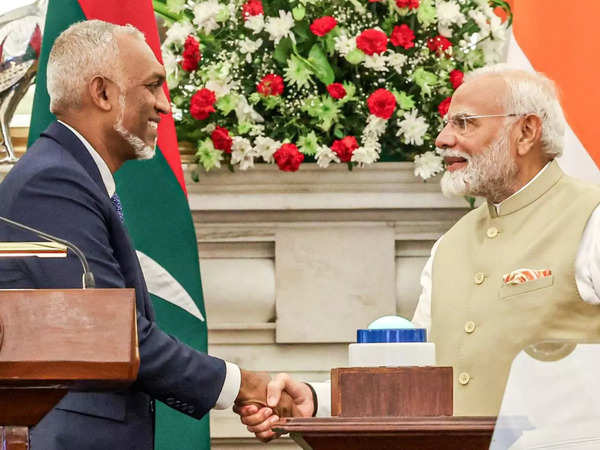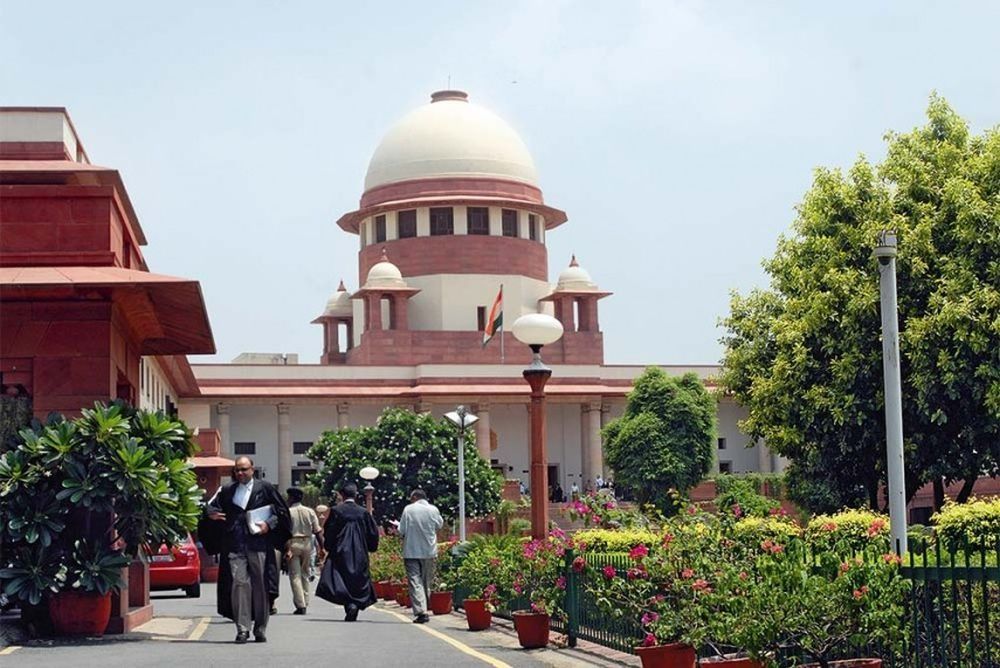Maldives President Mohamed Muizzu, who rose to power with strong anti-India rhetoric and a pro-China stance, is now taking steps to rebuild relations with India. During his first state visit to New Delhi, Muizzu called India a “valued partner,” marking a shift from his previous position. His campaign had focused on removing Indian military personnel from the Maldives, raising concerns about the future of the close ties between the two Indian Ocean neighbors. Despite these tensions, Muizzu’s visit to India suggests a desire to balance relations between India and China, a reflection of the Maldives’ complex geopolitical situation.
 Muizzu’s visit comes at a time when the Maldives is facing significant economic challenges. With its foreign reserves dwindling to $440 million, the country is struggling to manage its debt, which includes $1.37 billion owed to China. While the Maldives under Muizzu has strengthened ties with China, India remains a crucial economic partner. Muizzu’s discussions with Indian Prime Minister Narendra Modi focused on key areas like trade, defense, energy, and infrastructure, with India approving a $400 million currency swap agreement to help stabilize the Maldivian economy.
Muizzu’s visit comes at a time when the Maldives is facing significant economic challenges. With its foreign reserves dwindling to $440 million, the country is struggling to manage its debt, which includes $1.37 billion owed to China. While the Maldives under Muizzu has strengthened ties with China, India remains a crucial economic partner. Muizzu’s discussions with Indian Prime Minister Narendra Modi focused on key areas like trade, defense, energy, and infrastructure, with India approving a $400 million currency swap agreement to help stabilize the Maldivian economy.
Muizzu’s pro-China stance was evident during his election campaign and his earlier visit to Beijing, where he signed deals related to infrastructure and climate change. However, his recent outreach to India indicates a strategy to maintain strong relations with both powers. The Maldives relies heavily on tourism, with India being one of the largest sources of visitors. Amid economic strain and a decrease in Indian tourism after Muizzu’s election, rebuilding ties with India appears essential.
Michael Kugelman, an expert on South Asia, observed that Muizzu is aiming to balance relations with both China and India. While leaning on China for defense-related cooperation, Muizzu continues to engage India on economic and commercial fronts, recognizing India’s critical role in Maldives’ development.
Muizzu’s rise to power was fueled by the “India Out” campaign, led by his People’s National Congress (PNC) and its ally, the Progressive Party of the Maldives (PPM). The campaign called for the removal of a small Indian military contingent stationed in the Maldives, citing concerns over national sovereignty. Although the opposition to Indian troops was popular and contributed to Muizzu’s electoral success, his government has since worked to maintain practical ties with New Delhi, replacing military personnel with civilian staff to manage Indian-gifted aircraft.
Despite the campaign’s anti-India stance, Muizzu never pledged to cut off economic ties with India, which has provided significant financial aid to the Maldives over the years. India has invested in various sectors in the Maldives, including infrastructure, health, and education, making it an essential partner for the island nation.
The Maldives sits at a crucial maritime crossroads, making it a focal point in the geopolitical rivalry between India and China. India has long been wary of China’s growing influence in the region, including its military presence in the Maldives. During President Ibrahim Solih’s tenure, India provided significant financial aid and support to the Maldives, including military training and assistance in various development projects. China, on the other hand, has invested heavily in Maldivian infrastructure.
For India, maintaining influence in the Maldives is crucial, as the country sits on some of the world’s busiest shipping lanes. As Muizzu continues to navigate relations between the two powers, his visit to India highlights New Delhi’s determination to remain a key player in the region’s geopolitics.
Muizzu’s shift toward engaging with India raises questions about how his outreach will be received back home, given the anti-India sentiment that played a role in his campaign. While expelling Indian troops was a popular move, Muizzu’s continued economic cooperation with India is likely to be tolerated, as the Maldives relies on Indian support for its economic stability.
Kugelman noted that Muizzu’s diplomatic balancing act is unlikely to harm his domestic standing, as he fulfilled his campaign promise to remove Indian troops and has strengthened ties with China. His focus on maintaining economic ties with India may be seen as pragmatic, especially given the Maldives’ economic challenges.
Muizzu’s visit to India reflects the broader geopolitical dynamics at play in the Indian Ocean, where the Maldives, like other small island nations, must carefully navigate its relationships with larger powers to ensure its national interests are met.



